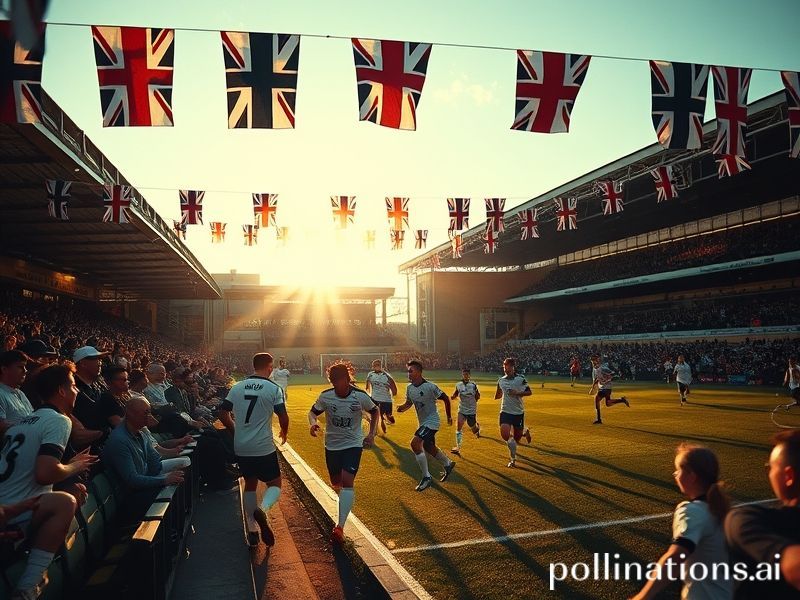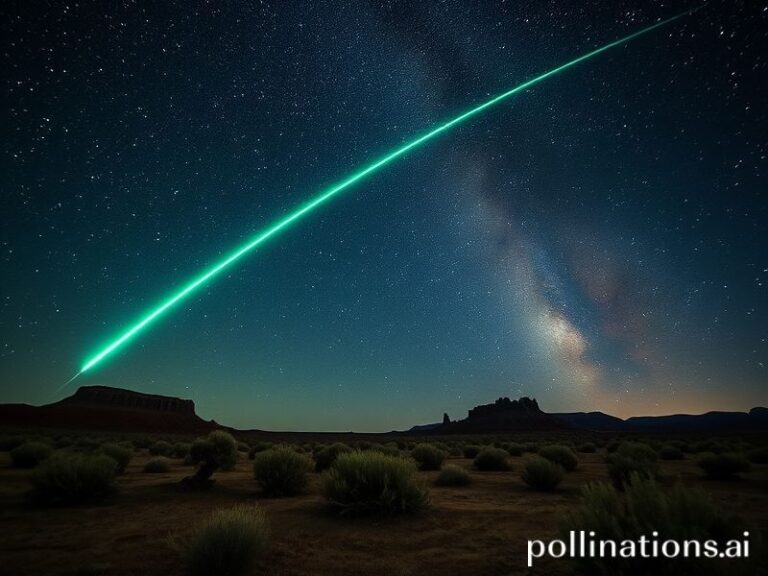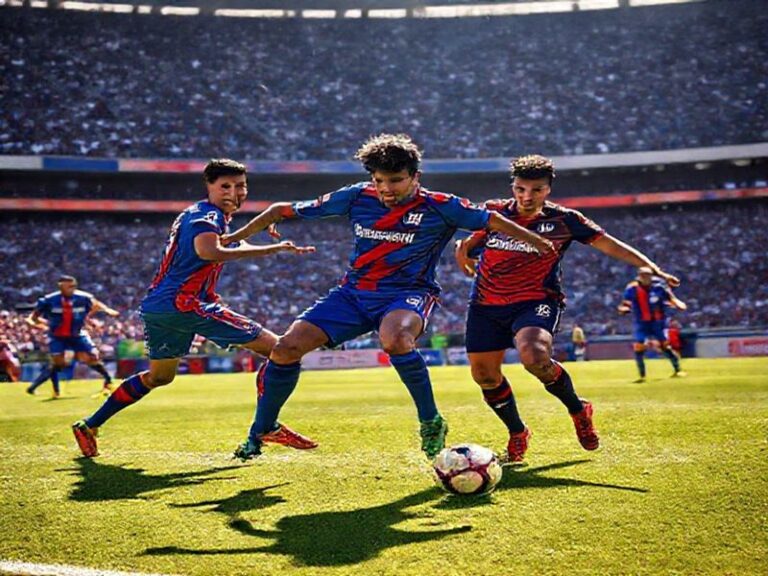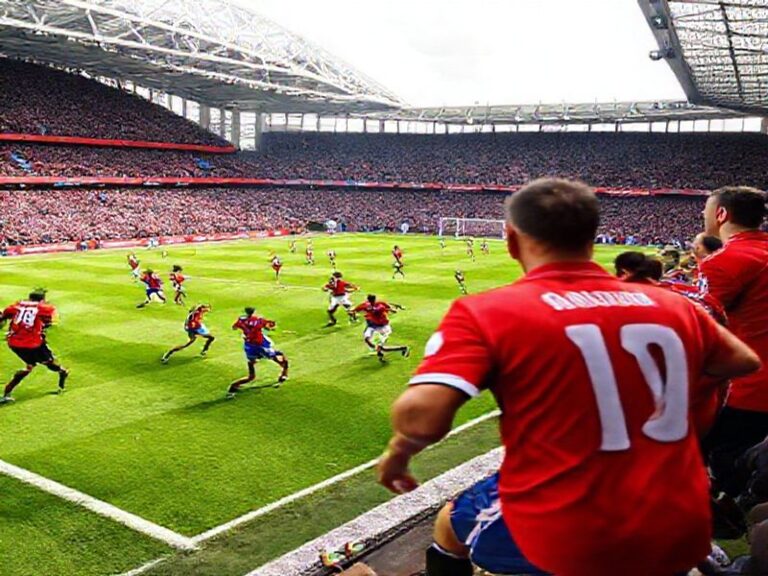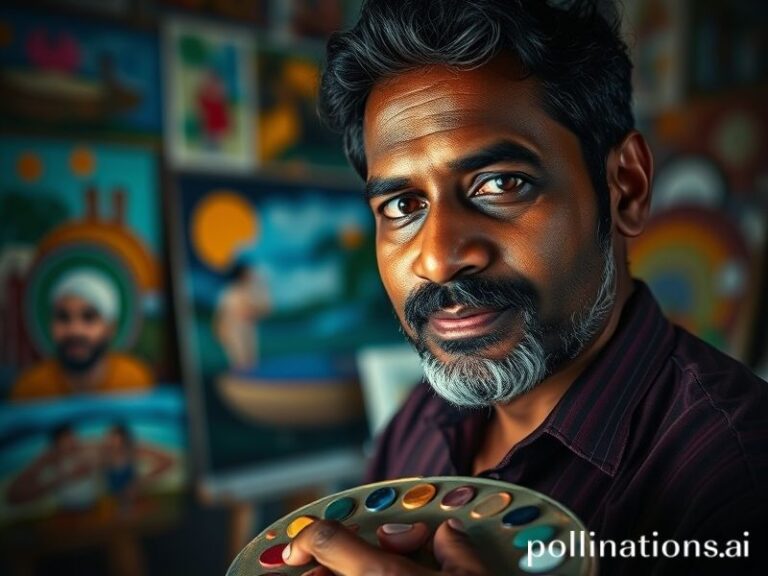UK Football: How the Beautiful Game Became the World’s Most Lucrative Mid-Life Crisis
UK Football: The Empire Strikes Back—With VAR and Petrodollars
By Our Man in the Global Sports Saloon
Somewhere over the North Atlantic, a chartered Gulfstream carrying a Qatari banker, a Silicon Valley data guru, and three North London season-ticket holders collides with the jet stream of history. The topic in the cabin: whether Manchester City’s latest trophy haul is an act of sporting genius or the most expensive geopolitical flex since the Suez Crisis. Welcome to UK football in 2024—where the Union Jack still flutters, but the cash arrives in yuan, riyal, and whatever cryptocurrency Todd Boehly has just discovered on Reddit.
Once upon a time, Britannia ruled the waves and the offside trap. Today Britannia mostly rules the broadcast rights auctions. The Premier League beams into 900 million homes from Lagos to Lapland, acting simultaneously as a soft-power Trojan horse and the planet’s most reliable supplier of weekend heartbreak. Across Africa, bar owners schedule generators to sputter to life just in time for kickoff; in Beijing, counterfeit Harry Kane shirts outsell Mao memorabilia on Taobao; and in war zones from Kharkiv to Khartoum, cease-fires are rumored—never confirmed—to coincide with Champions League nights. If you want to see imperial afterglow in action, forget the Commonwealth Games; watch a 19-year-old Senegalese winger score at the Etihad and hear the global roar that follows.
Yet the domestic mood is less “Rule Britannia” than “Doom Britannia.” The tabloids oscillate between jingoistic triumphalism and apocalyptic dread, depending on whether the Three Lions win on penalties or revert to type. After England’s latest exit, The Daily Mail blamed “woke hamstring injuries,” while The Guardian blamed “late-stage capitalism and the absence of safe standing.” Both were, in their own hysterical ways, correct.
Meanwhile, the English Football League—once the proud heartbeat of mill towns and coastal resorts—now resembles a Soviet breadline with better pies. Bury went bust, Derby flirted with liquidation, and Reading exists in a permanent state of existential Zoom calls with administrators. The joke on Fleet Street is that the Championship is merely “Premier League 2” but with worse Wi-Fi and more poetic despair. Fans still turn up, rain lashed and hope battered, because supporting Scunthorpe away on a Tuesday in February is cheaper than therapy and only marginally less effective.
Across the border, Scotland has weaponized Calvinist fatalism into a competitive sport. Celtic and Rangers duel like two medieval clans who’ve discovered satellite television and sports-washing. The Old Firm’s global reach now stretches to Boston Irish pubs and Melbourne coffeehouses, where expats argue about the 1980 Scottish Cup Final with the fervor of theologians parsing papal bulls. The SNP quietly calculates how many export dollars would follow independence if the national team ever qualified for something bigger than a moral victory.
Wales, bless its bilingual soul, still sings hymns and arias while its best player brokers Middle Eastern tourism deals in between free kicks. Northern Ireland remains the plucky underdog everyone forgets exists—until they beat Spain on a rainy night in Belfast and the world remembers that sectarian songs can, in the right key, sound almost like hope.
The international takeaway? UK football is no longer a league but a multinational content platform, a Brexit-era paradox in which sovereignty is loudly proclaimed while ownership is quietly surrendered. The crown jewels sit in glass cases financed by Abu Dhabi, American hedge funds, and—until recently—oligarchs who’ve since misplaced their super-yachts. Fans wave plastic flags printed in Shenzhen and chant songs older than the factories that closed to pay for them.
And yet, Saturday still arrives. From the granite stands of Ibrox to the gentrified gastro-pubs of Shoreditch, millions lean forward in unison, hearts synchronizing to a ball stitched in Pakistan. In that moment, empire, algorithm, and geopolitics fade. All that remains is the ancient, idiotic belief that 22 strangers can, for 90 minutes, make the world less unbearable. Then the whistle blows, the VAR screen lights up like a slot machine, and we remember the price of hope is eternal—a monthly subscription, auto-renewing.

